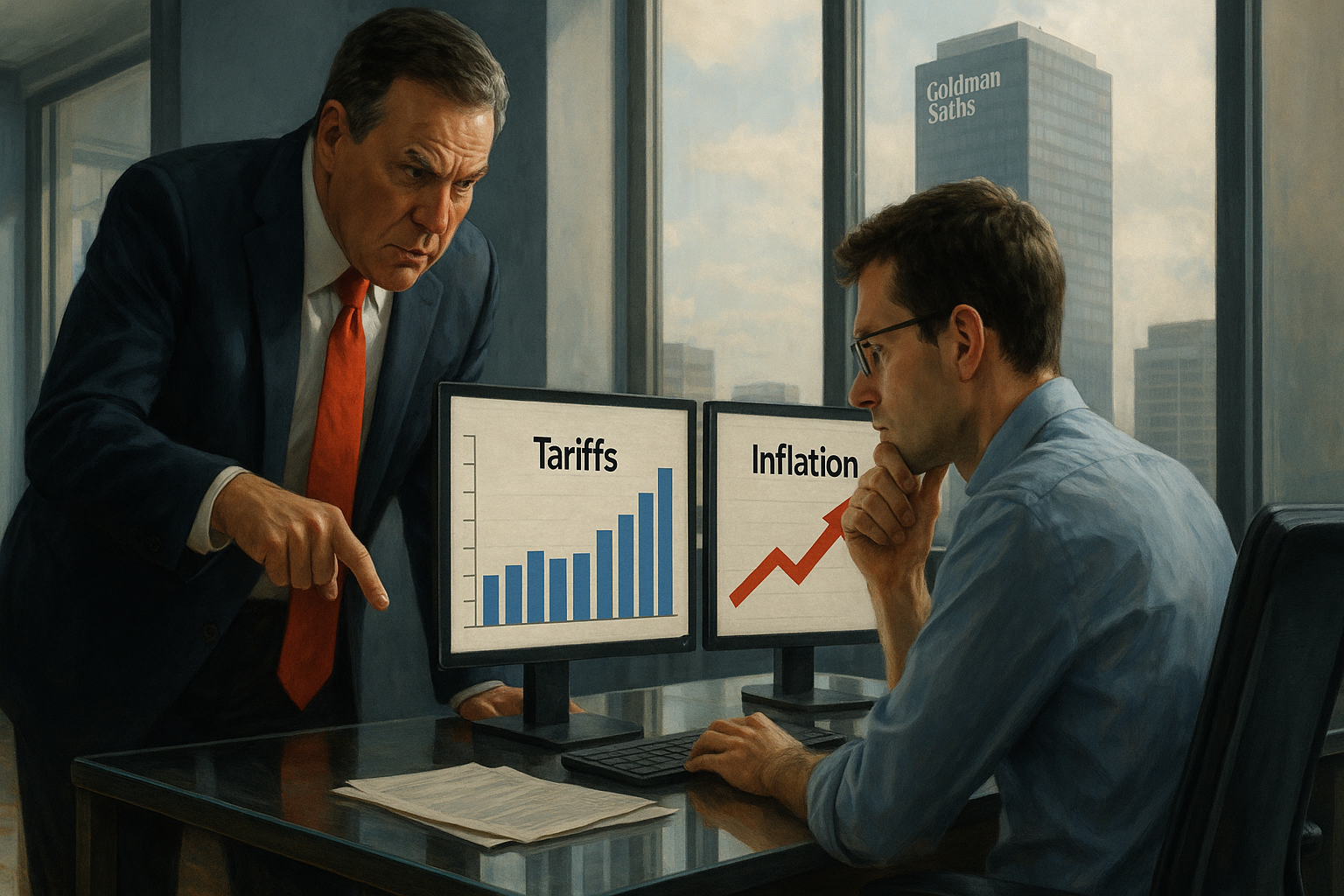In a move that perfectly encapsulates the thin-skinned nature of presidential politics, former President Donald Trump reportedly urged Goldman Sachs CEO David Solomon to give one of the firm's economists the boot. The economist's crime? Publishing analysis suggesting Trump's proposed tariffs might—brace yourself—increase inflation.
I've covered economic feuds for years, but this one has a special flavor of absurdity.
The confrontation highlights the increasingly uncomfortable relationship between Wall Street analysis and political sensitivities. Financial institutions hire economists to produce accurate forecasts, not politically convenient ones. At least that's the theory.
Goldman Sachs has long navigated these waters carefully. The investment banking giant has traditionally maintained its research independence while simultaneously sending a steady stream of executives through the revolving door to Washington. It's a delicate dance they've mostly mastered.
But Trump isn't known for respecting traditional boundaries.
"There's always been pressure on Wall Street research, but it usually comes from clients or corporate executives—not politicians demanding personnel changes," a veteran market strategist told me yesterday. "This crosses a line that makes everyone uncomfortable."
The former president's complaint stems from Goldman's economic projections that show his proposed tariff regime—which would impose up to 60% duties on Chinese goods and at least 10% on all imports—would likely drive up consumer prices. Which, y'know, is exactly what tariffs typically do.
Look, economic modeling isn't perfect. Forecasts miss. Assumptions fail. But the solution isn't to fire the messenger when the message contradicts your campaign talking points.
What makes this particularly rich is that Goldman Sachs (like most Wall Street institutions) has generally benefited from Republican administrations. The bank thrived during Trump's first term, with the corporate tax cuts padding their bottom line quite nicely.
As of press time, Goldman hasn't announced any changes to its economics department. Solomon, who's weathered his own share of controversies at the helm of the legendary firm, has reportedly made no commitments to Trump about staffing changes.
The whole episode raises a question that extends far beyond this specific incident: What happens to our financial markets when economic analysis becomes subordinated to political loyalty?
Financial markets function on information—preferably accurate information. When we start demanding that economic forecasts conform to political narratives rather than data, we're asking for trouble. Big trouble.
(And don't even get me started on what this means for the independence of the Federal Reserve under a potential second Trump term. That's a whole other article.)
Perhaps the most troubling aspect is how this episode might affect other economists and analysts across Wall Street. Will they pull their punches knowing their jobs might be on the line if their research displeases powerful political figures?
In my twenty years covering the intersection of Wall Street and Washington, I've seen pressure applied in countless subtle ways—but rarely this explicitly. This kind of direct intervention has a chilling effect that ripples far beyond a single economist at a single bank.
For investors, the message is clear as day: buyer beware. If the research you're reading has been filtered for political palatability, it's not research at all—it's propaganda with numbers attached.
And that's something no one should be banking on.




